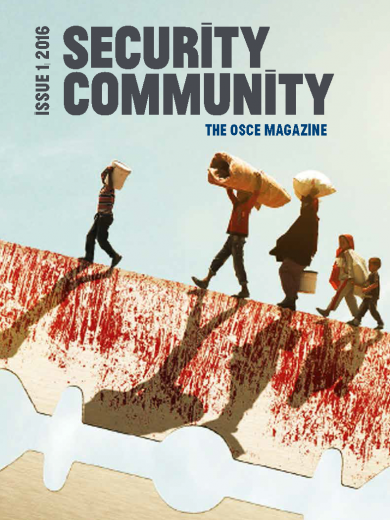Tunisian Quartet in conversation
In the summer of 2013, Tunisia, the country that just two years before had kick-started the Arab Spring with its “revolution of dignity” that ousted the autocratic ruler Zine El Abidine Ben Ali, was rocked by a series of assassinations and violent protests that seemed to forebode civil war. Instead, by the end of the year, the cabinet had voluntarily resigned and the conflicting parties had signed a roadmap committing to the creation of a non-partisan government, the adoption of a new constitution, creation of a new electoral management body and electoral law, and holding of parliamentary and presidential elections – all of which were implemented.Four civil society organizations that united to form the Tunisian National Dialogue Quartet were largely responsible for turning the country around and bringing it back onto the path of democratic transition. For their work they received the Nobel Peace Prize in 2015.
Representatives of the four organizations – the Tunisian General Labour Union (UGTT), the Tunisian Confederation of Industry, Trade and Handicrafts (UTICA), the Tunisian Human Rights League and theTunisian Order of Lawyers – visited the OSCE in Vienna in February 2016 to address the year’s inaugural session of the Mediterranean Contact Group under the chairmanship of Austria. In the conversation below they speak about their achievements and also about the challenges which Tunisia, an OSCE Partner for Co-operation, faces today.
Abbassi: The Quartet has completed what it set out to do. With the national dialogue, we found a solution that allowed the state institutions to take root and establish themselves. We have been requested to institutionalize this dialogue. But we have declined. Because that would be a parallel effort to the declared will of the electorate; that would weaken the democratic institutions. Our task is done and it is now up to these state institutions to continue. But the Quartet will always be watching what is happening in Tunisia; we will be vigilant, all four of us, until our country finds its balance – on the political and socio-economic level but equally on the level of security, as far distant as possible from terrorism. Our role is to intervene if ever we see signs of destabilization. In such a case, we need to move quickly, because if we don’t, the consequences will be dire. That is what still unites us. We will intervene if our country needs us.
Welcome to Security Community
Security Community is the OSCE’s online space for expert analysis and personal perspectives on security issues.
The views expressed in the articles are those of the authors and do not necessarily reflect the official position of the OSCE and its participating States.


